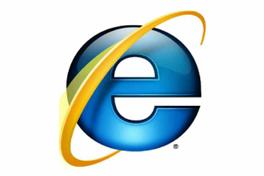Microsoft ready to kill off IE6
The man tasked to take out Internet Explorer 6 explains why it's a delicate job.


Microsoft has put out a contract on IE6, but the software giant still insists on taking its time killing off the aging browser.
Speaking to IT PRO, Ryan Gavin, Internet Explorer business group lead, said that it was his job to kill off IE6 - as well as move the browser brand forward with IE9. At the moment, IE8 has about 25 per cent of the market, with IE6 holding onto 17.5 per cent, according to Net Applications.
"If you think back to the browsers of five years ago or even the browsers of nine years ago - things like IE6 - one of the things we certainly see, and one of the parts of my role, is that that modern web experience really does require a modern browser," he said, citing security, performance and standards as key areas that have come along rapidly in the past decade.
"While IE6 was a great browser at the time, part of my job is to get Internet Explorer 6's share down to zero as fast as humanly possible," he said.
Still, Microsoft has no intention to end support of IE6 for enterprises and developing countries which still make up the base of its support.
"When you look at IE6 and say 'a customer paid us for us for Windows XP' and a hospital built out a mission critical patient tracking application based on that browser, and just saying, 'we're not going to honor that commitment,' that's not a customer orientation, that's not putting the customer first," Gavin said.
Instead, Microsoft is working with such organisations to move their applications to more modern browsers, he said, adding that the firm also works alongside developers to help move applications past IE6.
Get the ITPro daily newsletter
Sign up today and you will receive a free copy of our Future Focus 2025 report - the leading guidance on AI, cybersecurity and other IT challenges as per 700+ senior executives
Gavin admitted that currently in the works IE9 won't be able to run on the nine-year old Windows XP operating system, despite that aged operating system still holding a massive 64 per cent market share.
"There's this notion that the device starts to matter, and the modern hardware actually starts to matter," he said, explaining that a computer running XP simply won't take advantage of features in IE9, such as new hardware accelerated browsing.
Asked if that meant people using XP will ditch IE in favour of Google's Chrome or Mozilla's Firefox, Gavin said: "We have a great modern browser for XP today, and it's Internet Explorer 8."
Freelance journalist Nicole Kobie first started writing for ITPro in 2007, with bylines in New Scientist, Wired, PC Pro and many more.
Nicole the author of a book about the history of technology, The Long History of the Future.
-
 Cleo attack victim list grows as Hertz confirms customer data stolen
Cleo attack victim list grows as Hertz confirms customer data stolenNews Hertz has confirmed it suffered a data breach as a result of the Cleo zero-day vulnerability in late 2024, with the car rental giant warning that customer data was stolen.
By Ross Kelly
-
 Lateral moves in tech: Why leaders should support employee mobility
Lateral moves in tech: Why leaders should support employee mobilityIn-depth Encouraging staff to switch roles can have long-term benefits for skills in the tech sector
By Keri Allan